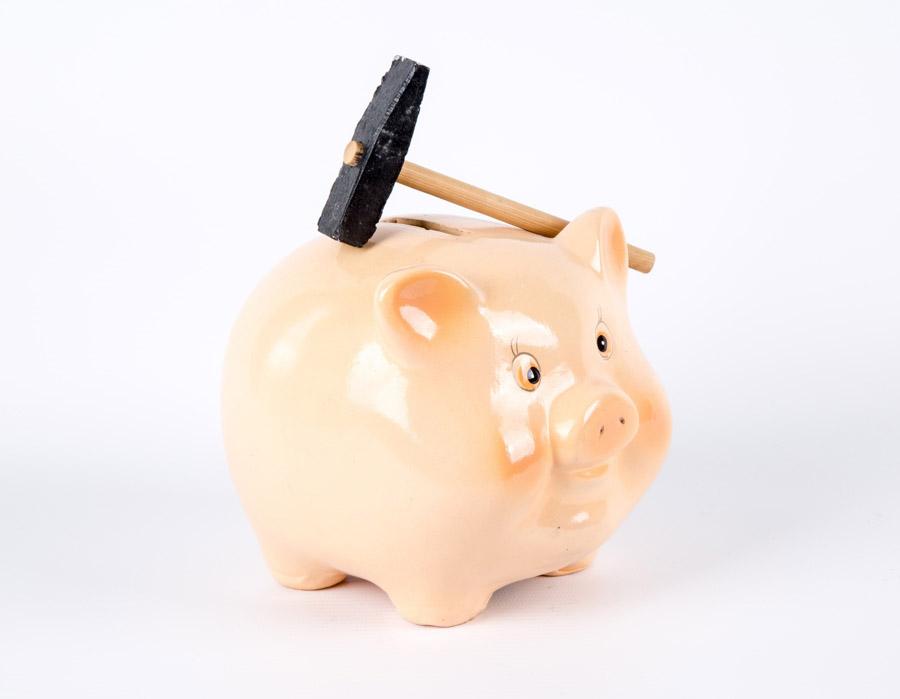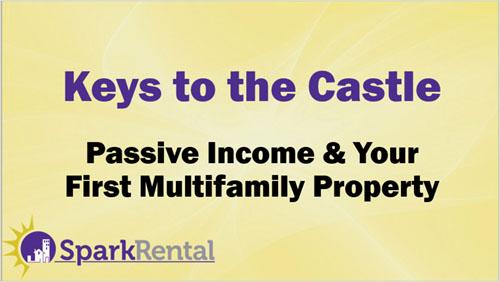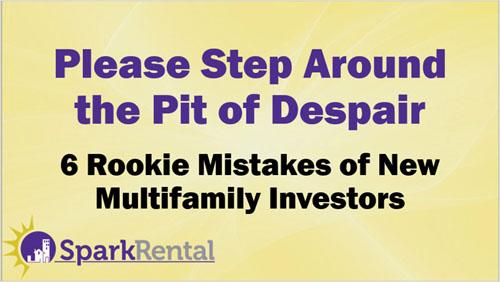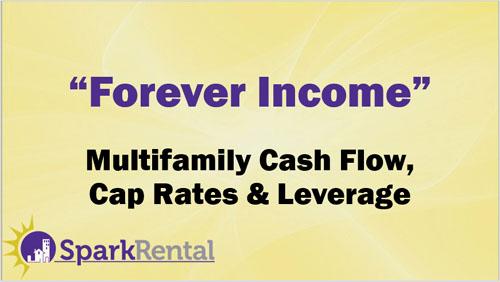
6-Part Series on Unconventional Financing
Because this question is asked so often, we’re launching a five-part series on the topic. In each, we’ll examine one alternative financing source in detail. Pros, cons, risks and rewards of borrowing from sources like retirement accounts, peer-to-peer lending websites, hard money lenders, credit cards and personal loans, friends and family. Finally, we’ll look at cash – while it’s not financing, there are some benefits to buying in cash, that shouldn’t be ignored. While not “alternative financing” per se, online landlord loans are another source of funds investors should consider. They tend to be reasonably priced as long-term (30 year) landlord mortgages, and they don’t have the same limits as conventional loans. For typical rental refinances or purchase financing, landlord loans should be considered a primary option. But what are some alternatives, if you want to get more creative? Before getting started on our journey through alternative financing, there’s one other traditional source of funds that’s worth considering: commercial loans. Commercial loans tend to be more expensive (think twice as expensive as a primary residence loan), require more money down (at least 20%, as much as 50%) and are generally amortized over 25 years, rather than the residential standards of 15 or 30. They can take longer to close and are often more complicated, but are worth a look.Introduction to Retirement Account Raids
Ever heard the expression “mortgaging your future?” Retirement accounts are not only your nest egg for your later years, but they’re also critical safety nets for emergencies. Consider this sentence: “Well, I may have lost my job, but I know my family won’t starve on the street because we can always draw on our retirement accounts.” If you are absolutely, 100% sure you want to cut the lines of that safety net in order to invest in real estate… well, you’re brave enough to read on. First of all, understand that even though it’s technically “your” money in your IRA or 401(k) accounts, your access is heavily restricted. For all intents and purposes it’s not yours; it’s like Uncle Sam took your allowance or your lemonade stand earnings and put them in a jar up on the high shelf and said “You can have it back in 30 years.” So, you can borrow money from yourself and pay it back (plus fees), or you can break the jar and just take the money. But if you do, you’ll be slapped with at least a 10% IRS penalty and you’ll immediately owe 25-40% of the money right back to the government in the form of income taxes on it. This is called a distribution, and the results are not pretty. We’ll consider that latter option unfeasible, and move on to borrowing options.Free Mini-Course: Passive Income from Small Multifamily Properties
How Borrowing from Your 401(k) Works
For very, very short-term needs, you can pull money out of your retirement accounts. No penalties, as long as you return it to the account within 60 days. If you don’t, it’s considered a distribution and you will know the IRS’s wrath as they lay their vengeance upon thee. Chances are you need the money for longer than 60 days, so let’s look at loan options. First, understand that you can’t borrow money long-term from an IRA or SEP-IRA. You can borrow money from a Roth IRA, but only contributions, not earnings. You can also borrow money from a 401(k), 403(b) or similar retirement accounts; we’ll focus on 401(k) accounts since they’re most common. Borrowing from your 401(k) is not a loan in the traditional sense, where you need to provide proof of income, credit reports, and your firstborn child as collateral. Your 401(k) administrator will generally let you borrow up to a certain percentage (usually 50%) of your total fund balance, up to a total loan of $50,000. They will charge an administrative fee, and may charge additional fees on top. But any “interest” charged actually goes back into your 401(k) account, so you’re technically paying interest from one of your accounts to another. Pros & Cons of Borrowing from Your 401(k) to Invest in Real Estate
Pros & Cons of Borrowing from Your 401(k) to Invest in Real Estate
As such, borrowing money from your 401(k) is generally much, much cheaper than borrowing money from anywhere else. Score 1 for using retirement funds for real estate investing.
For the same reasons, 401(k) loans are extremely fast, often just requiring a few clicks on your administrator’s website. Cash in hand a few days later. Deuces.
A downside is that your money is no longer earning returns from whatever it was invested in (stocks, bonds, etc.). But there are two upsides here: just as the money is no longer able to earn the gains from the original 401(k) investments, it’s also no longer susceptible to losses. And it will (hopefully) earn you an excellent return from the real estate investment you’re using it for.
Typically, 401(k) loans are amortized over a five year loan term. There are generally no prepayment penalties, so you can put the money back into your 401(k) account sooner if you like.
As a final note on risk: if your 401(k) is through your employer (and most are), then if you lose or leave your job, you have to roll the money over from that 401(k) to another (or to an IRA) pretty quickly. So your loan may be called due immediately… right at the moment when you are least able to pay it back. Real Estate as an Investment Within Your IRA or 401(k)
While you can’t borrow money from your IRA, you can choose real estate as an investment option for the funds in your IRA account. Likewise for 401(k) accounts, and while not all retirement account custodians will allow it, there are many who do.
You will need a self-directed IRA or 401(k) account, that lets you choose your investments. You can pick stocks, bonds, mutual funds… or you can pick a real estate investment.
Bear in mind that proceeds must go back into the retirement account as well. Just as you can’t pocket dividends from the stocks in your IRA, you can’t pocket rent profits or capital gains from selling your IRA real estate investment.
Of course, the normal restrictions still apply. You’re still limited on how much you can invest in a given year. In 2019 the IRA contribution limit is $6,000 if you’re under 50, and $7,000 if you’re over 50. The 2019 limit for 401(k) contributions rose to $19,000 ($25,000 if you’re over 50).
You still can’t pull the money out until reaching 59½.
As a final note, keep the accounting very clean, and only use money from your retirement account for buying and maintaining the property. No commingling of retirement account funds with normal funds!
The Upshot of Using Your Retirement Accounts to Invest in Real Estate
Retirement accounts are heavily regulated by the IRS. As with any dangerous animal, be very, very careful when dealing with IRS and exploring the boundaries of retirement account flexibility. If you step over the line, you’re entering a world of pain.
With that said, retirement accounts pose intriguing options for real estate investment. Whether borrowing money from them, or leaving the money in them to actively invest in rental properties, retirement accounts are valuable resources. Advanced investors can use them to save a fortune in interest, lender fees and taxes, but novice investors should get a few deals under their belt before getting too fancy with retirement financing tricks.
Lastly remember the golden rule of real estate investing: stay liquid. Always have at least a few thousand dollars in reserve in case the roof needs replacing or the tenant stops paying their rent.
The last thing you want is to suddenly need $5,000 for your rental property… only to have nowhere to access it!♦
Have you ever used retirement accounts to find real estate investments? How did it go? Like always we’re in the trust tree here, failures are just stepping stones to future successes! (We’ll try not to sound like a children’s book next time we say that.)


























Intriguing idea, investing in rental properties as the investment inside my Roth IRA. I’d never considered it.
Still, I like balancing my real estate investments with equities, and retirement accounts are a good place to buy and hold them. But if I get desperate for a landlord loan one of these days, it’s nice to know I can borrow against my 401k temporarily!
I have considered using my IRA however that would be my last resort but I like the calculated risk you did there!
I hear you Vincent!